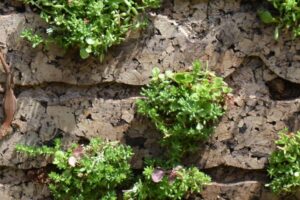
FEVER: A project to transform the European energy system and adapt it to renewable energies
February 13, 2023
SCAPE: Towards standardisation, cost reduction and improved features of power conversion systems for electric vehicles
February 16, 202314/02/2023
It is the first open source library that enables multi-hop and peer-to-peer data routing in a LoRa communication mesh network.
The research group Computer Networks and Distributed Systems (CNDS) of the Universitat Politècnica de Catalunya - BarcelonaTech (UPC) is working on LoRaMesher. The main objective of this project is to implement a data routing protocol that enables the interconnection of IoT applications on LoRa wireless communication technology. IoT devices connected by LoRa construct a mesh, so that they can communicate between each other through the nodes of the network, as occurs on the Internet.
Consequently, with the LoRaMesher library, these devices can communicate between each other in a two-way manner. This enables services to be offered to nodes in the network, such as receiving updates or executing actions.
This opens up the opportunity for applications that are stored on the Internet to be able to connect to IoT devices. It expands their functionality beyond merely emitting data that are gathered by the IoT devices’ sensors.
Collaborators in the LoRaMesher project are Hacking Ecology S.L. (Spain), in the framework of the European project LoRaTRUST for obtaining reliable IoT data, and Puretek Innovations LTD (United Kingdom). LoRaMesher provides both companies with the communication layer between IoT devices.
LoRaMesher has been developed at the UPC during 2022 and is currently operating in real devices.
Impact and results
LoRaMesher is a library that facilitates the implementation of communication between IoT devices with an efficient routing protocol. It enables fast, reliable data exchange and is flexible and scalable. In addition, it is easier to implement than other technologies in any IoT project. It is an essential tool for developers of high quality IoT solutions.
The code that is developed is available in an open repository of GitHub in this link.
In addition, a demo application has been developed that is known as LoRaChat, which is also available here.
The project has obtained funding from the Spanish Government’s Ministry of Science and Innovation through the State Research Agency (project PID2019-106774RB-C21, project PCI2019-111851-2 (LeadingEdge CHIST-ERA), and the project PCI2019-111850-2 (DiPET CHIST-ERA) and PDC2023-145809-I00).

Technology
You want to know more?
Related Projects
- The BIOsignal Analysis for Rehabilitation and Therapy (BIOART) research group at the Universitat Politècnica de Catalunya – BarcelonaTech (UPC) coordinates the Proactive Response and Efficient Planning with AI for Resilient Emergencies in hospitals (PREPARE) project, which aims to optimise hospital preparedness during emergencies through dynamic capacity and risk assessment using artificial intelligence (AI).
- A research team from the inLab FIB at the Universitat Politècnica de Catalunya - BarcelonaTech (UPC), together with the Asociación de Personas con Movilidad Reducida (AsoPMR), has taken part in the Spot4Dis project to enhance the mobility and autonomy of people with reduced mobility.
- The La Volta project foresees the construction of a large Catalan vault pergola within the Llars Mundet campus, in the Montbau neighbourhood (Horta-Guinardó district). This structure will become a new architectural landmark for Barcelona, combining traditional construction techniques with contemporary innovation. The project involves the Rehabilitation and Architectural Restoration Research Group (REARQ), at the Universitat Politècnica de Catalunya - BarcelonaTech (UPC), and is led by the Architects’ Association of Catalonia (COAC) and the Barcelona Provincial Council.
SATE-VEG: A system for energy renovation of buildings that helps reduce the urban heat island effect
Researchers from the Architecture, Energy and Environment (AiEM) group at the Universitat Politècnica de Catalunya - BarcelonaTech (UPC) have developed SATE-VEG, an external thermal insulation system with a vegetal coating that offers seasonally adaptive thermal behaviour, enhances urban biodiversity and promotes positive health effects. The system is made from organic materials, requires low maintenance and consumes minimal water.





